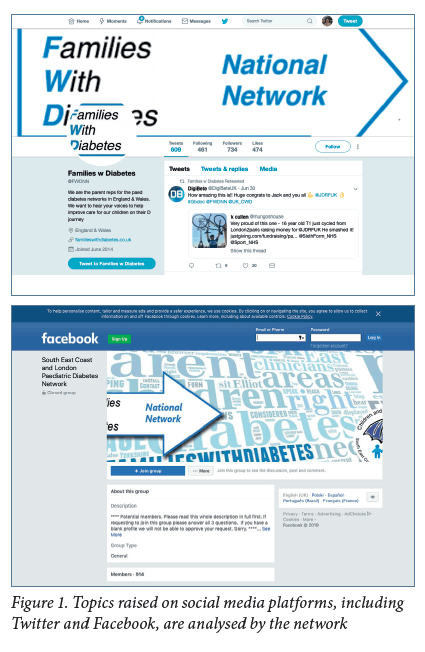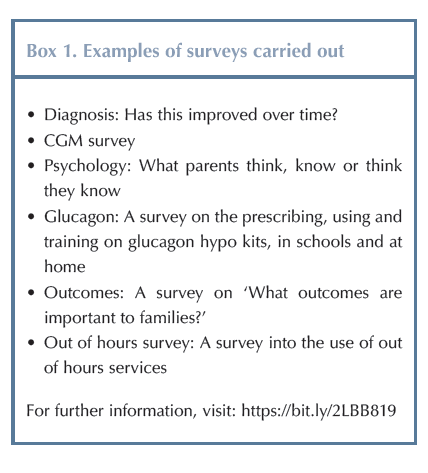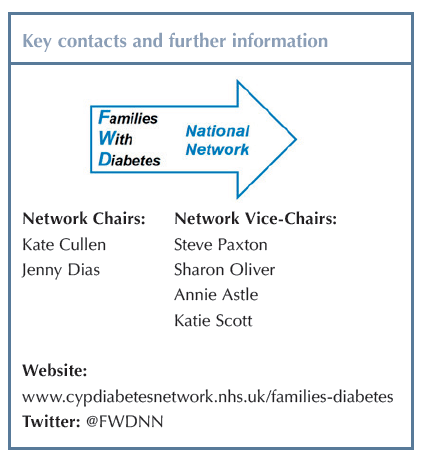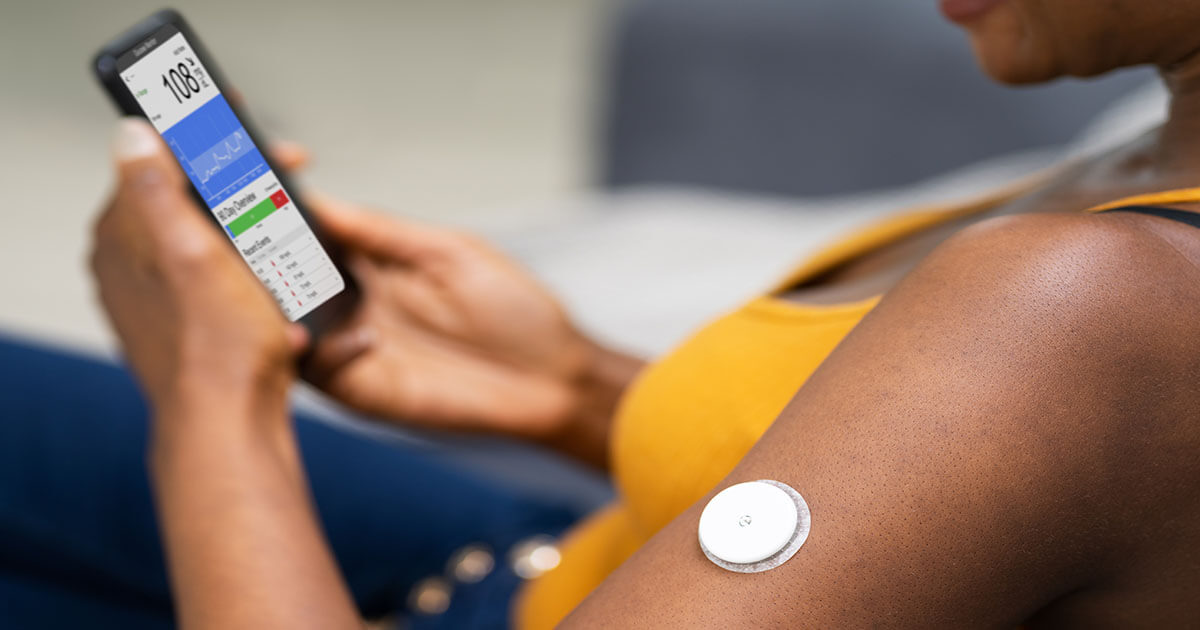What do you think of when you picture the multidisciplinary team you want to shape and work with in your clinic? Do you imagine only different disciplines you would like to see represented? A full team with competent representation in each of the Best Practice Tariff areas, secure in the knowledge you’ll be able to satisfy the multiple audit points?
Or within those very important roles, do you feel there may be room for one additional discipline? Namely, representation from those children, young people and their families that you support. Does the thought of having lay representation bring you out in a slightly cold sweat? A bit like the PTA representatives from the primary school, but to the power of a 100. Happily, there is a place where a huge range of voices and opinions can be canvassed, and even learning and research garnered.
A source of experience and support
If you are unaware of the Families with Diabetes National Network (FWDNN), and the role it plays in paediatric diabetes networks, then this article is for you. The FWDNN is made up of all the patient and parent representatives from the many regions across England. They all give their time and talents freely and readily in order to support the families who live with, and the healthcare professionals who work in, diabetes.
The lived experience of these representatives is wide-ranging: from parents who had babies diagnosed with type 1 diabetes through to those who found themselves propelled into the diabetes world when their teenagers were diagnosed. We have fathers, mothers and carers who all know how it feels to be on the receiving end of the diagnosis of type 1 diabetes for at least one of their children. Every single representative brings with them a unique view on what it takes to support and parent a child living with diabetes.
The FWDNN ‘meets’ three or four times a year, via online meeting applications, and discusses the topics that are being raised on the various social media platforms we operate on, see Figure 1, as well as the feedback we get from other parents at our hospitals. In addition to this, we all attend the regional Children and Young People’s Diabetes Network meetings and learn about the challenges healthcare professionals are facing in their roles as part of the larger support team for our children and young people living with diabetes.
Surveys and research
The FWDNN has been responsible for numerous surveys and pieces of research – examples of which are given in Box 1 – that feed into the work programme and help to shape the priorities of the national network and identify gaps in services or themes that need to be addressed.
Some of the most eye-opening surveys and feedback have come from canvassing the children and young people living with diabetes directly. Their responses to questions in the ‘What worries you most about diabetes?’ survey changed the clinical narrative, when it became abundantly clear that an HbA1c is very low on the agenda for children and young people with diabetes, but hypos, having a family in the future and the sort of jobs they can expect to do all ranked highly.
In addition to feedback surveys, there have been psychology-based surveys, which have been very well received by our colleagues in psychology. A policy-changing survey, which added weight to the argument about access to continuous glucose monitoring and how beneficial a tool this can be when managing diabetes, ranks highly among the most referenced research we carried out.
Aiming for equitable care and access to the right tools
The FWDNN members do not shy away from challenging topics – they report the mood music ‘on the ground’. Whether it be pushing for policy changes around glucagon use, training and storage in multiple school settings, or submitting and presenting findings at International Society for Pediatric and Adolescent Diabetes meetings, the network is made up of a vibrant group of passionate and informed patient representatives. We aim to focus on equitable care and access to the right tools at the right time for every individual who manages, or has the responsibility for managing, type 1 diabetes.
Working together for positive outcomes
Personally speaking, I am immensely proud of the South West Network and how closely members work with myself and my fellow patient representatives. I have never been made to feel anything other than an equal voice at the table, and the collaborative approach taken by the healthcare professionals from every discipline across the South West, and the difference this meaningful engagement makes, can be seen across the audited outcomes of the network. By working together, we identify the areas that need bolstering and address these, but also celebrate the huge achievements and successes that are apparent.
The team that my daughter liaises with today has a hugely different make-up to the one that was in place over 15 years ago when she was diagnosed. This is thanks, in part, to the very many healthcare professionals and patient representatives who have been before us, working together and paving the way for a world-leading service that strives to carry all children and young people through diagnosis and on into a life in which they will thrive.








NHSEI National Clinical Lead for Diabetes in Children and Young People, Fulya Mehta, outlines the areas of focus for improving paediatric diabetes care.
16 Nov 2022